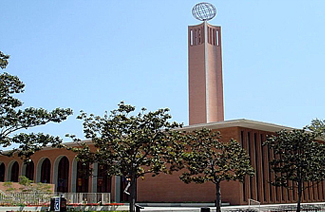雅思写作的提高不仅需要自己勤加练习,还要多读多看,下面是
雅思大作文题目:如何面对永不消失的垃圾
雅思大作文范文:
Many people say that we have developed into a“throw-away society”, because we are filling up ourenvironment with so many plastic bags andrubbish that we cannot fully dispose of. To wantextent do you agree with this opinion and whatmeasures can you recommend to reduce thisproblem?
In present-day society, plastic containers andutensils are extensively used in big cities and the countryside alike. They are so ubiquitous Iwould hazard the guess that each one of us has seen, at one time or another, the unsightlyscene of plastic bags swirling in the wind. These plastic shopping bags, chopsticks, to-goboxes and mineral-water bottles, to name but a few, when not properly disposed of, create acolossal amount of non-biodegradable refuse. Therefore, some people argue that we haveembarked upon a “throw-away” era when plastic trash is largely dumped indiscriminately andirresponsibly (this practice is often labeled “white pollution” on account of the color of plasticwastes). Personally , I wholeheartedly support their view.
There are numerous reasons for this worrisome phenomenon coming into being. To beginwith , at present the bulk of people who shop and/or eat out regularly are still poorly-informed, uninformed or misinformed about the pernicious influence that non-biodegradablepollutants exert on the ecosystem, which is the main culprit in the global-scale mishandling ofthe plastic wastes. The chief component of such trash is polythene, which cannot decomposeon landfill sites over the process of the next hundreds of years if no major scientificbreakthrough comes along in polythene treatment. Thus, such trash must be dealt withcollectively rather than be scattered like tumbleweeds. Secondly, the proliferation of plasticshopping bags and eating ware is largely fuelled by the surging, headlong consumerism.Plastic containers and utensils are lighter in weight, cheaper(often free of charge) in price andwater-resistant in performance. These superior properties make them preferable to theirpaper and cloth counterparts in customers’ eyes; and as consumer satisfaction reignssupreme in contemporary society, compared with superb portability, affordability and utility,how to dispose of them is the last thing the customers are concerned about. Additionally,plastic bags, wrap and containers are also commercially feasible since they are cheaper tomanufacture, ship and store. These mercenary considerations also have prompted the goodold cloth or paper bags to be supplanted by plastic bags but over the phasing-out process,few stores and restaurants advocate or encourage the use of environmentally—benigndisposal of plastic trash, hence the whole slew of non-biodegradable garbage. Andenvironmental hazards ensue.
Given the scale and severity of “white pollution”, we must take immediate steps toaddress this scourge. In the first place, we must do our utmost to enhance people’sawareness of how persistent and devastating non-biodegradable trash can be to ourenvironment and our posterity’s. Secondly, retail stores and dining establishments shouldspare no effort in encouraging their customers to reuse plastic packing items. Furthermore,indiscriminate and irresponsible dumping of household garbage or personal junk should beoutlawed by the legislature and heavy fines or even jail terms must be imposed on thosecompulsive litterbugs who fail to get their act together. Then , on the part of the biochemicalresearchers and technologists , scientific research must be launched here and now in pursuit ofeffectual ways to convert non-biodegradable refuse to biodegradable refuse. Last but notleast, the government must not shirk its obligations in mobilizing scientific resources andrallying popular support in the crusade against “white pollution”. Neither should it pay just lipservice to relevant research and campaigns if no enough funding can be obtained otherwise.Additionally, I am convinced a customer tax levied by the government on the use of plasticbags will also help to curb this massive “white pollution”.
The havoc non-biodegradable refuse can wreak on the ecosystem is beyond ourimagination. It can eventually devastate soil, water and the aquatic and terrestrial biota. Wemust start combating this environmental catastrophe before the ecosystem irretrievablybreaks down under the reign of the minute plastic debris.
网整理
如需更多资料,请来网!

















